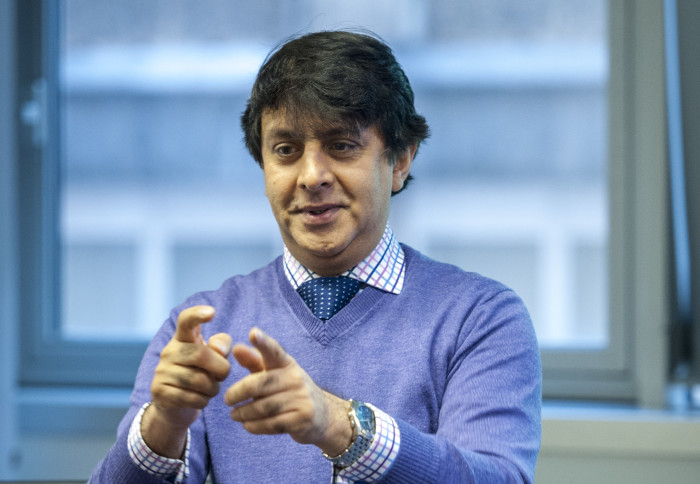Dr Omar Usmani appointed Phase 1 Deputy Director of MBBS programme

Dr Omar Usmani
Dr Omar Usmani shares his thoughts on his recent appointment as co-Deputy of Phase 1 within the School of Medicine at Imperial College London.
Dr Omar Usmani is an Academic Clinical Reader in Respiratory Medicine at the National Heart and Lung Institute (NHLI). Both he and Dr Richard Pinder, School of Public Health, have been appointed as Phase 1 Deputy Directors for the Medicine programme at the College.
What inspired you to apply for the role of Co-Deputy Director?
I reflected on my own time in medical school and how we would say we wanted to be taught differently and better. So, I applied for the role as I saw an opportunity to be involved in the leadership of the College's revamp of the medical curriculum, shaping the new MBBS programme and training the next generation of doctors.
What do you hope to achieve in the new role?
A key part of my role is developing Phase 1c (Year 3), which is unchartered territory in terms of curriculum review and the development of content - a challenge that I’m excited about. Phase 1c is a ‘pivot’ year for the medical students where they transition into their formative clinical years and training - they are both eager and a little apprehensive. I hope to inspire their enthusiasm to apply the knowledge they have learnt to the patients they will meet on the wards and in clinics, and to help them integrate what they know in their clinical approach, developing their individual professional skills, values and behaviours.
Have you witnessed any changes in terms of student development as a result of the new MBBS structure?
It is early days, we are just 18 months in, and with the challenging times we have all experienced, the students have shown real resilience and flexibility in the adaptations to the delivery of teaching. Initial feedback from the students is really encouraging and reinforces we are on track in achieving the concept for CSI: “It [CSI] was stimulating and mimicked how we will need to think as practicing doctors. I like that we get to test our knowledge in ways that we will actually use in the future - it has encouraged me to read around the material to understand the ways that concepts are applied and prioritised in a clinical setting”.
What is your favourite part of teaching?
I have been the clinical lead for the flagship module CSI (clinical scientific integration) in Phase 1a/1b (formerly Years 1 and 2) and have really enjoyed developing the module. We have used digital innovation as a framework for the students’ learning, introducing them to clinical vignettes and patient scenarios that develop their clinical reasoning skills, underpinned with the science of medicine. A journey they begin right in the very first few weeks of starting medical school at Imperial.
What is your current research focusing on?
I am investigating the psychological and behavioural perceptions of patients with asthma and COPD (chronic obstructive pulmonary disease) when they inhale through dry powder inhalers (DPIs) of different internal resistance and understanding the relationship to their lung physiology. The aim is to develop a validated questionnaire that may form part of the regulatory approval for device manufacturers when registering new DPI devices and be integrated into clinical practice to help clinicians in choosing the right inhaler device for their patients. The project is funded by the US Food and Drug Administration.
What has been a research highlight of your career to date?
I fondly remember my time as a PhD student at NHLI. I was really pleased that my doctoral thesis output on aerosol science that challenged existing perceptions on inhaled aerosol particle size, lung deposition and clinical response in patients with asthma was published in the ‘blue’ journal, chosen as the cover art for the publication issue, and accompanied by an editorial. My dissertation also won the annual NHLI best thesis prize.
What are you looking forward to most as the UK eases out of lockdown?
Meeting up with friends and family in our favourite restaurants and as my children keep reminding me – a big party to celebrate their birthdays.
Article text (excluding photos or graphics) © Imperial College London.
Photos and graphics subject to third party copyright used with permission or © Imperial College London.
Reporter
Miss Lizzie Lomer
National Heart & Lung Institute